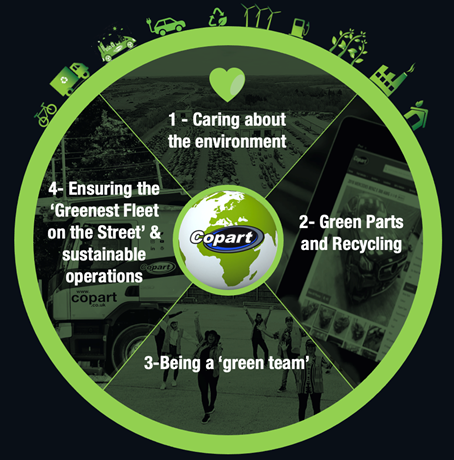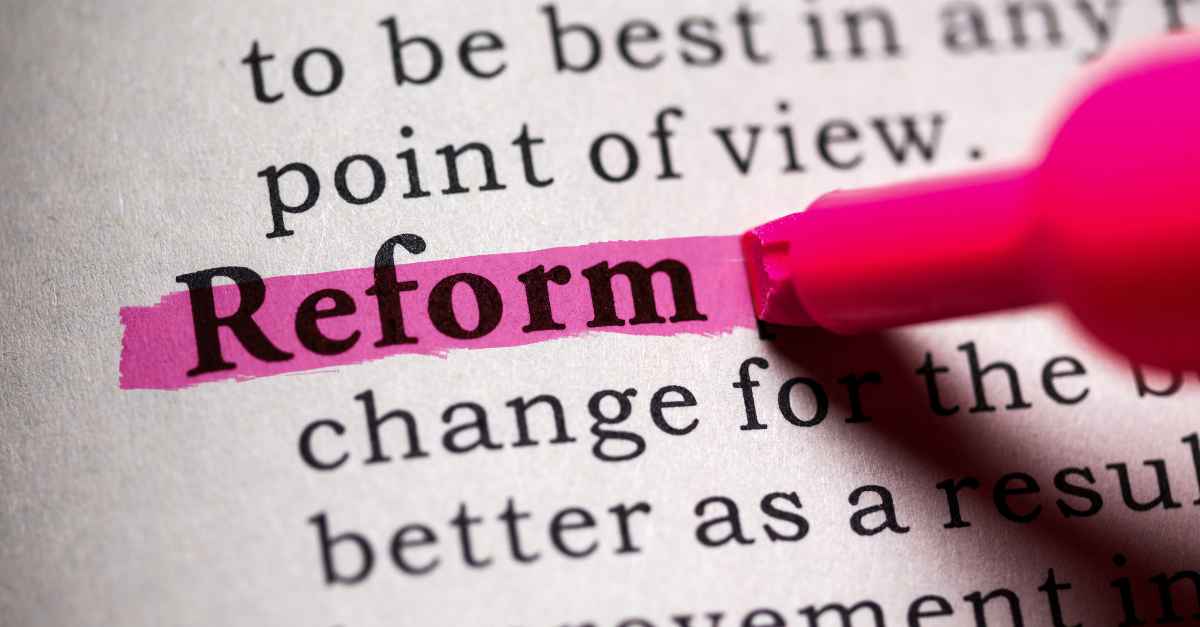Copart is a global leader in vehicle remarketing and recycling, handling more than 500,000 used and salvage vehicles every year in the UK alone. Here, we speak to UK & Ireland managing director Jane Pocock about Copart’s focus on and commitment to sustainability, and ask what that means for the business on a day-to-day basis.
Can you give us an overview of how sustainability has risen up the list of priorities at Copart in the last few years?
As a global leader in vehicle remarketing and recycling, Copart has always been committed to environmental sustainability.
From our inception in 1982, we have played a critical role in the automotive circular economy as the key intermediary enabling the recycling and reuse of automobiles and automotive parts, while facilitating access to transportation around the world.
With sustainability now a strong focus around the globe, our customers, partners, and stakeholders expect Copart to continue leading by example. As the owner of the UK’s largest salvage transport fleet, we’ve made sustainability the focal point of our future strategy.
Our Plan-Net-Zero programme (our formal commitment to both global sustainability and becoming a more sustainable business by achieving net-zero emissions) is well underway, with a renewed focus on vehicle recycling, green parts, and EVs.
With a decade of experience and expertise in the handling of EVs, our operational network is fully equipped and ready for the electric revolution ahead. We have steadily been building specialist facilities, skills, and processes around handling and remarketing EV’s, and now have UK-wide capabilities.
In addition to significant investment into specialist training for our people, our Operation Centres have been constantly evolving to support electric and hybrid requirements, with hundreds of changes made to our operational processes.
What does sustainability success look like for Copart?

Copart’s ‘sustainability quadrants’
As a global leader in online vehicle remarketing and recycling, our vision is to achieve a carbon-neutral future while consistently delivering a world-class level of customer service.
Our ‘sustainability quadrants’ (see image) ensure we focus on the right things to achieve our sustainability goals.
- We’ll continue to expand our UK recycling and green parts capabilities.
- 75% of our annual vehicles sold for re-use or re-build; 25% sent to scrap recyclers.
- Over 5,808 tonnes of vehicle components recycled and over 5,000 vehicles crushed for recycling in the last year.
- We’re increasing energy efficiency through smart technologies and innovative green solutions.
- Our ongoing sustainability refurbishment programme means the design of our future offices will be energy-efficient and constructed responsibly.
- We are introducing more outside green spaces to our locations to improve air quality, encourage nature, and reduce our carbon footprint.
- Nothing is off the agenda, from light bulbs to waste management.
- Our ‘Greenest Fleet on the Street’ initiative has seen Copart invest in upgrading our fleet, to deliver lower mileage, lower fuel consumption, and lower emissions.
- We’ve committed to providing Euro VI compliancy across our full 250-strong transporter fleet through an ongoing fleet replacement and expansion programme.
How is Copart working with partners to initiate change in this area?
As a global market leader, our insurance customers expect us to be a sustainable partner/green supplier and lead by example, so we must continue to rise to this challenge.
We are working with our partnership network across fleet, transport, infrastructure, and education, reviewing everything from Carbon Literacy training for our teammates, to the most sustainable fuel options to ensure we operate the ‘Greenest Fleet on the Street’.
To keep us on track and on target, external auditors will review our annual Streamlined Energy and Carbon Reporting (SECR) and Energy Savings Opportunity Scheme (ESOS) reports, as well as Copart’s EMS objectives and on-site processes, to ensure we achieve our sustainability commitments.
Our Plan-Net-Zero programme also involves supply chain analysis. We comprehensively review and quantify each of our supplier’s emissions using the Economic Input-Output Life-Cycle Assessment (EIO-LCA) method.
Can you give us an insight into the role partnerships are playing in achieving your sustainability targets?
Our Copart teams are working closely with a consultancy firm to develop a comprehensive Project Charter, which will agree critical success factors, timeframes, targets, and roles and responsibilities of key personnel.
A Net Zero Gap Analysis will then be completed to identify key improvements and opportunities and establish emissions boundaries and data inventory, which will lead on to the development of our Net Zero Roadmap.
We’re excited about making meaningful and measurable changes as we look forward to the development of more sustainable business practices and a greener future.
What do you see as the greatest challenge in terms of sustainability?
The greatest challenge will be reacting quickly and ensuring that we continue to stick to the timescales ahead.
There is also work ahead of us to do all we can to educate and encourage all our teammates to live and breathe sustainability in everything they do, both inside and outside of work.
We want to make this part of our everyday culture and communications going forward and we are continuously introducing various green initiatives across the business, including our Choose to Reuse campaign, where we hope to encourage the mindset of recycling and the avoidance of single-use products.
There is more work is still to be done, but Copart is passionately committed to the challenges ahead. By making a transformative change today, we believe we can create a sustainable tomorrow.
How is sustainability influencing process and operations within Copart?
As part of our Plan-Net-Zero sustainability strategy to achieve the ‘Greenest Fleet on the Street’, we have committed to providing Euro VI compliancy across our full 250-strong transporter fleet through an ongoing fleet replacement and expansion programme.
Investment into the deployment of the latest connected telematics and cameras across our fleet will enhance efficiency and significantly lower fuel consumption and emissions.
Our comprehensive driver behaviour telematics data not only improves driver productivity and long-term fleet sustainability, but also helps to lower emissions and maintenance costs by planning the most intelligent and effective routes.
Because of the strategic and unrivalled positioning of our sites across the country, we are proud to say that we are never far from urban communities, and therefore our customers. This means that we can collect and handle vehicles quickly, efficiently, and with minimal environmental impact.
We’ve also made significant investment in laptops and software for our teammates, supporting hybrid working practices and reducing unnecessary mileage and fuel consumption.
How are you engaging with your workforce to ensure everyone is working towards the same end?
We send out regular internal communications to keep teammates updated on the progress of our green initiatives and how they can contribute to their success.
Much of this is led by Copart’s Green Team, our dedicated environmental team which includes teammates from each Copart location.
The Green Team helps to ensure that all Copart’s processes are carried out safely and that the environment is considered at every stage. Weekly and monthly checks are completed by the team at all Copart locations including waste disposal, noise pollution, land and water contamination, evidence of pests/vermin and air emissions.
The work of the Green Team helps us to conduct our business in a way that is ethical and mindful of environmental impact and helps us to maintain a positive business reputation.
We’ve also made a significant investment into training with initiatives like the Carbon Literacy Project, to provide formal training and environmental awareness for teammates both inside and outside of work.

















